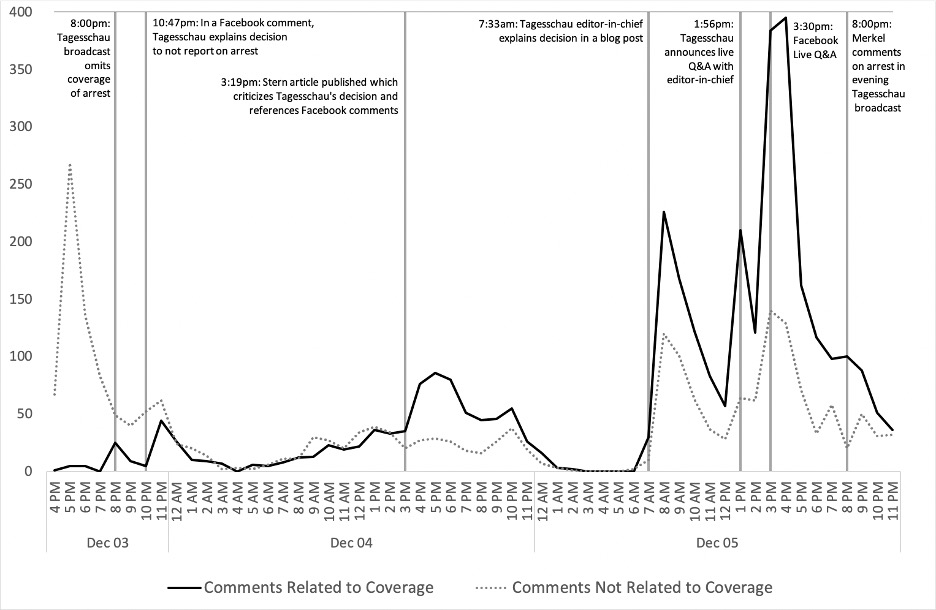 The European Commission published its Digital Single Market strategy today. One of the key priorities this sets out is to prohibit unjustified ‘geo-blocking’ – practices and technologies which prevent access to online services located in other Member States, such as streaming of audio-visual content. In relation to audio-visual services, this policy – which content providers fear will undermine their business models of territorial licensing and windowing across national markets – builds on some recent legal rulings that will limit the room for manoeuvre as negotiations on the policy unfold. Dr Helen Weeds of Essex University outlines the key judgments and their implications for this important area of European economic and cultural policy.
The European Commission published its Digital Single Market strategy today. One of the key priorities this sets out is to prohibit unjustified ‘geo-blocking’ – practices and technologies which prevent access to online services located in other Member States, such as streaming of audio-visual content. In relation to audio-visual services, this policy – which content providers fear will undermine their business models of territorial licensing and windowing across national markets – builds on some recent legal rulings that will limit the room for manoeuvre as negotiations on the policy unfold. Dr Helen Weeds of Essex University outlines the key judgments and their implications for this important area of European economic and cultural policy.
Recent developments
A ruling of the Court of Justice of the European Union (CJEU) in October 2011 has important implications for the licensing of audio-visual content rights. In the joined cases Football Association Premier League v QC Leisure and Karen Murphy v. Media Protection Services Limited (cases C-403/08 and C-429/08, hereafter referred to as “Murphy”), concerning the importation of satellite decoder cards between Member States, the CJEU ruled that restrictions in licence agreements between content providers and broadcasters imposing ‘absolute territorial exclusivity’ are contrary to EU competition law. This means that the licensor cannot require the broadcaster to refuse supply of its decoder cards for use outside the licensed territory. Similarly, national legislation prohibiting the importation, sale and use of decoding devices from another Member State was found to be a violation of the free movement of services. The ruling also addressed a number of questions concerning the application of copyright laws to broadcasts of sports matches, an area of intellectual property law which continues to evolve (and is beyond the scope of this post).
The Murphy ruling does not go so far as to prohibit the territorial licensing of AV rights. Content providers may continue to contract with a different broadcaster in each Member State, and on differential terms, if they wish. However, licensors and broadcasters must not restrict unsolicited or ‘passive’ sales of their services by prohibiting the importation, sale and/or use of satellite decoder cards in another Member State. Following this ruling, expats who wish to subscribe to a pay TV service in their home country while living in another Member State should be able to do so, and parallel trade in decoders cannot be restricted.
While the Murphy ruling concerned sports content, its principles appear likely to be extended to other forms of audio-visual content. A European Commission (EC) investigation into the cross-border provision of pay TV services, opened in January 2014, is considering whether the principles set out by the CJEU in Murphy should be applied to other content such as Hollywood movies. This investigation also focuses on absolute territorial exclusivity only: Joaquín Almunia, then EC Vice President responsible for Competition Policy, stated explicitly that “we are not calling into question the possibility to grant licenses on a territorial basis, or trying to oblige studios to sell rights on a pan-European basis” (European Commission press statement, 13 January 2014). Rather, the focus of investigation is on restrictions – such as geo-blocking of on-line distribution – that prevent existing subscribers who travel to another EU country, or expats and others who wish to subscribe from another Member State, from accessing audio-visual content.
Economic issues
A number of economic questions arise. How might a prohibition on absolute territorial exclusivity affect cross-border trade in audio-visual services and differentials in (wholesale) license fees and retail prices between Member States? Will passive sales of decoder cards and online distribution be sufficient to create a true single market in audio-visual services and equalise prices between Member States? Are there other obstacles to a single market in these services, such as language and cultural differences, which will support price differentials even if passive sales are unrestricted?
Economists might also question the consumer impact of the EU approach. While the single market and (implicitly, at least) the elimination of price differentials between Member States is a founding principle of the EU, it is not necessarily the case that this is always in the interests of consumers. If licensors are pushed towards EU-wide pricing, completing the single market might result in exclusion of consumers in low-demand countries whose willingness to pay is below the common European price. Moreover, in an industry with substantial fixed costs – the creation of audio-visual content incurs a very large ‘first copy’ cost and negligible marginal cost thereafter – there is a danger that eliminating geographic price discrimination may inhibit fixed cost recovery, reducing the production and diversity of European audio-visual content.
What about public broadcasters?
Another question concerns the possible extension of the principles set out by the CJEU in Murphy beyond pay TV. While the Murphy ruling and the current EC investigation apply to pay TV services only, it might be asked whether similar considerations should be extended to free-to-air/free-to-view services, including those of public broadcasters?
A particular issue arises in relation to public broadcasters. In order to achieve their various public service objectives, public broadcasting regimes typically require the content to be made freely available to the population of the Member State. The provision of public service content is subsidised from national licence fees, tax revenues or spectrum discounts – i.e. this is paid for, one way or another, by the Member State population. Public broadcasters often restrict access to their content by viewers outside the Member State: for example, online content distribution by the UK’s public service broadcasters (the BBC, ITV, Channel 4 and Five) is subject to geo-blocking. Should we expect public broadcasters to make their content freely available to viewers in other Member States, given that those populations are not subject to the national licence fees or taxation that provide for the costs of the service? (Though the BBC, for one, has opened up an anomaly even within the UK as households may legally access BBC iPlayer as a catch-up service without paying the TV licence fee.) Moreover, public broadcasters such as the BBC which produce a substantial amount of their own content earn significant revenues from selling this overseas, a source of income which may be undermined by restrictions on geo-blocking.
The Digital Single Market strategy is silent on these issues. For the time being, at least, the focus appears to be primarily on paid-for services, in line with the Murphy ruling and on-going EC investigation. But given the importance of the public broadcasters’ content to viewers and the relatively high share of national audiences such content continues to attract, this omission may need to be filled at a later date.
This post gives the views of the author and does not represent the position of the LSE Media Policy Project blog, nor of the London School of Economics and Political Science.





